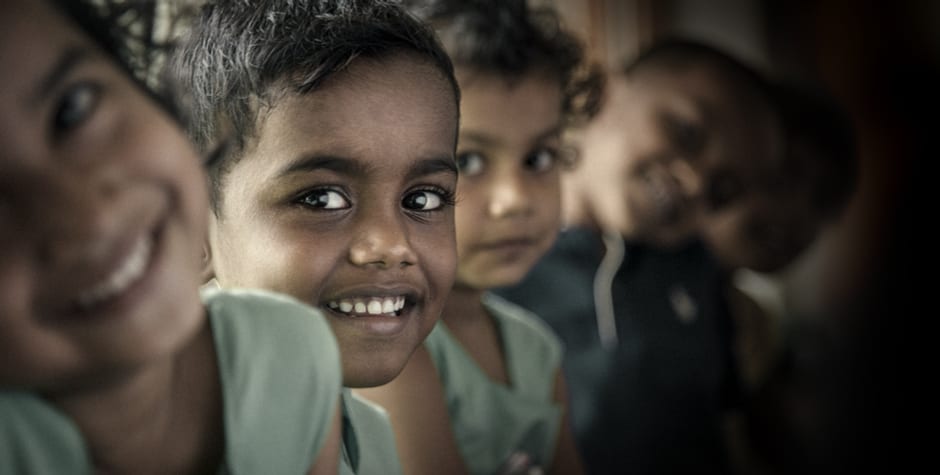Exposing Increasing Persecution of Christians in Sri Lanka and Urging U.N. To Demand Protection for Religious Minorities
We recently informed you that we have filed 13 country reports with the U.N., detailing each country’s human rights record, including issues concerning Christian persecution, human trafficking, forced labor, abortion, etc. These reports are filed through our international affiliate, the European Centre for Law and Justice (ECLJ), which has Special Consultative status with the U.N.
Through a mechanism called the Universal Periodic Review (UPR), the U.N. Human Rights Council reviews each country every three to four years for its human rights record and makes recommendations to improve the situation of human rights. Different countries and NGOs like ours also get a chance to make recommendations.
For the current 42nd UPR session, we have submitted reports on Argentina, Benin, Czech Republic, Gabon, Ghana, Guatemala, Japan, Pakistan, Peru, South Korea, Sri Lanka, Switzerland, and Zambia.
My previous blog discussed our report on Pakistan. In this blog, I would like to share a bit about our report on Sri Lanka, a majority Buddhist country. While Buddhism is generally known to be a peaceful religion, Sri Lankan Buddhists, however, have acted contrary to that viewpoint by violently attacking Christians for their faith.
Our report informed the Human Rights Council regarding the high status the Sri Lankan Constitution gives to Buddhism. Even though the Constitution also provides for rights to freedom of religion and speech to minorities, the Supreme Court of Sri Lanka has declared those rights null and void. In 2003, the Court ruled that “the Constitution does not recognise a fundamental right to propagate a religion.”
Our submission stated:
Although protected in the language of the Sri Lankan Constitution, as well as Sri Lanka’s international commitments, the Supreme Court’s faulty opinion destroys religious freedom for minority religions, as it fails to recognize proselytizing and providing for the vulnerable and needy as legitimate expressions and practice of religious belief, and instead categorizes them as the unconstitutional propagation of religion.
Further, our report highlighted Sri Lanka’s blasphemy laws.
Article 291A punishes with imprisonment “the deliberate intention of wounding the religious feelings of any person,” as well as the utterance of words or sounds, performance of gestures, or placement of objects, which can be interpreted as offensive. Article 291B similarly criminalizes words, visible representations, insults or attempts to insult if they are deliberately and maliciously intended to “wound[] the religious feelings of any person.”
These laws are used to protect Buddhism and persecute adherents of other religions, primarily Christianity. In addition to these problematic laws, our submission discussed several instances in which Buddhist fundamentalists attacked Christians.
For example, in March 2022, a mob of 600 people, made up of “Buddhist fundamentalists who believe that the country is a historic Buddhist land,” including 60 Buddhist monks, stormed a Christian church during Sunday service and demanded that all religious activities stop.
In February 2021, a church . . . was attacked with gasoline bombs and stones.
In January 2021, a mob of about 75 people attacked a pastor who was visiting a Christian home . . . . The mob violently attacked the pastor’s driver and “forced the pastor and his wife to leave the village.”
In October 2020, a Christian pastor shut down his church after “five years of intimidation [from Buddhist monks] that culminated in him being ordered to a police station where he faced further threats not only to himself but against his parishioners.”
On August 4, 2019, a group “of Buddhist monks viciously beat up a Christian student” following a Sunday service.
Highlighting several other instances of violence, our report urged the U.N. to engage with the Sri Lankan government and hold it responsible for its international obligations under the human rights treaties it has ratified. We asked the U.N. to urge Sri Lanka “to properly investigate and prosecute all cases of attacks against Christians and other minorities by Buddhist extremists and actively work to put a stop to these types of religiously motivated attacks.”
At the ACLJ and ECLJ, we continue to work with various U.N. bodies and mechanisms, such as the Human Rights Council, the UPR, and Working Groups to advocate for the fundamental rights of Christian minorities around the world.
